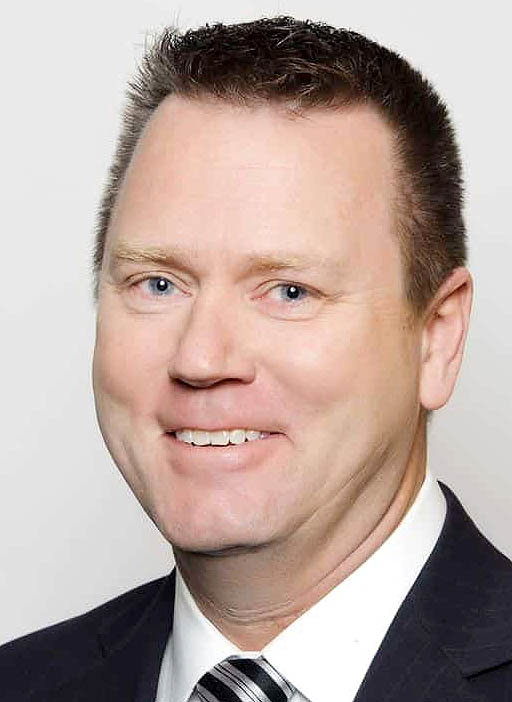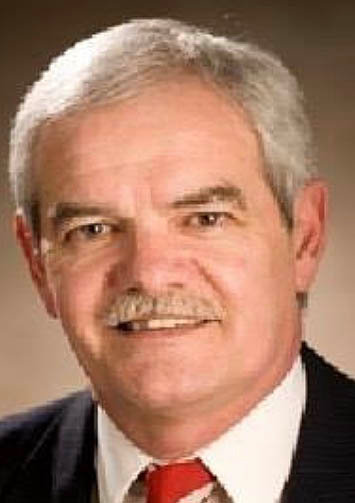Sen. Reichman, Rep. Graber say legislature didn't fully grasp local impact of Back the Blue law
BY CHUCK VANDENBERG
PCC EDITOR
FORT MADISON - A couple of unexpected turns came from a discussion with two area legislators on Friday evening in Fort Madison.
The Fort Madison Chamber of Commerce hosted a rare evening round table with State Rep. Martin Graber (R-Fort Madison) and State Sen. Jeff Reichman (R-Montrose). State Rep. Joe Mitchell (R-Wayland) was unable to attend.
One of the most compelling conversation points turned toward the impact the Back the Blue law is having on county budgets statewide.
The new law requires county compensation boards to recommend increasing sheriff's wages equal to other law enforcement administrators around the state including officials with the Iowa State Patrol, Iowa Department of Corrections, and Iowa Department of Criminal Investigations.
In many counties, the chief deputy and other sheriff department administrators, including the Jail Administrator, are tied to the sheriff's salary, as is the case in Lee County.
According to Iowa Code, county boards of supervisors are permitted to adjust the recommended pay increases as they see fit, but a finer point in the code is that any adjustment to compensation board recommendations have to be applied equally across all county departments.
Last year, Lee County's Compensation Board recommended a 45% increase for the sheriff and a 10% across-the-board increase for all other county departments. In addition, each year the same calibration on salaries is required by law, so that number could continue to increase proportionally unless the bill is amended.
Washington County's Board of supervisors just approved a 35% increase in the sheriff's salary structure and a 20% increase for all other county departments.
Both Graber and Reichman said the issue may need revisited.

"There were some unintended consequences from that," Reichman said. "We do need to pay our sheriffs more. I think we've seen that and we wanted to show that we do value our law enforcement.
"We wanted to increase salaries, but we weren't properly informed on just how much of an impact it would have. It was shocking to see the disparity across the state, to be quite frank."
Graber agreed the legislature wasn't given sufficient information on the bill.
"I don't think the law enforcement officials association gave full disclosure are on what they were trying to get to, or didn't understand it. And I don't think we received full disclosure when we voted on the Black The Blue, as far as impact to the counties," Graber said.

"It isn't as clean and clear, there is more latitude in there than what we may have been lead to believe. At least I believe that. But the question then becomes how do you treat the other folks."
Graber said there may be more wiggle room that what is perceived.
"If you continue to increase wages, the budget gets bigger and it can only be so big, so you either look at cutting expenses... or you're gonna wind up leaving people out of the equation," he said.
"You know, a 45% increase for the sheriff and his guys might mean less deputies on the road, so we have to be careful in balancing all that stuff."
When asked about the potential of using the $1.9 billion projected budget overflow to help counties fund some of the wage increases implemented in the GOP-led bill, both legislators said that could be one option going forward.
"Could that be on the table at some point in time, it's possible," Graber said. "But personally I'm not in favor of that. I believe that is taxpayer money paid in and the taxpayers should get it back."
Graber said he would like to see the fund used to send Iowans a check for overpayment of state taxes.
"I don't think I'm gonna win that battle, so I think you're going to see a lot of creative uses of that money," he said.
Another issue brought up during the session was the 4% flat tax Governor Kim Reynolds proposed during her Condition of the State Address last week.
Graber said he favors that direction, reiterating the governor's point that a flat tax is a more fair tax.
"The 4% tax or whatever it turns about to be, is a positive move because it literally gives it back to the people that are paying the taxes," Graber said.
He said one of the highlights of the program is to exempt retirement income, including cash-rent payments, to retired farmers 55 and older. He said the tax makes Iowa more competitive.
"It's a four-year phase-in as I understand it and it's ratcheted down a bit, that's the proposal, but again, it could go to 4% this year if that's what lawmakers want to do," he said. "I don't see that happening, at least not in the House, as we want to see the impact of lowering it this much and then this much."
Reichman said he hasn't seen all the details of the proposal, but said the Senate has a reputation of being a bit more bold and one Senator has proposed a 0% flat tax.
"I don't think the Senate is going to have any trouble getting to 4% with our proposals," Reichman said.
"There are a lot of states overspending and are in the red and nearly bankrupt. So we're doing really well. Kudos to the state for being fiscally responsible. About 10 years ago, Chet Culver left after bonding a billion dollars and we're still paying $55 million of bond service annually on that."
"It's a good time to lower those again and put money back in Iowa taxpayers' pockets and be financially responsible. We're on that path and it's working."
Other issues posed during the session included funding public schools at the governor's recommended 2.5% spending growth as well as vouchers for private school enrollment.
Graber said education accounts for 56% of the state's budget through 12th grade.
"We spend a lot of money on education. The last time the State of Iowa cut funding for education, Chet Culver was your governor," he said.
Reichman said it's unfortunate that the 2.5% increase is actually no increase because of current inflationary pressures he attributed to the Biden Administration.
"That's the initial offer and visibility on the budget. I agree, I don't think it's gonna stay there. We're going to see some negotiation on that. I think we'll see something change positively there," he said.
Fort Madison teacher representative Rachella Dravis asked the two specifically about Senate File 128's establishment of an education savings grants, or voucher program.
Reichman said he hadn't seen details on the program yet. He said a version went through and it was mentioned in the governor's address.
"We couldn't pass a weak one last year, I don't see us passing us stronger one this year," Reichman said.
"If they're gonna do that I'd like to see them pull from a different pot of money so it's not taken from public schools."
Comments
No comments on this item Please log in to comment by clicking here